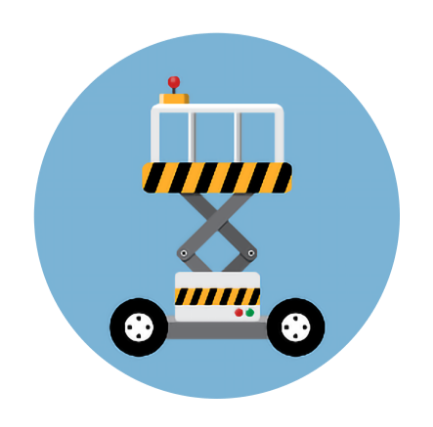Module'sE-Learning Module's
Health & Safety at Work LawThe Health & Safety at Work Law module is designed to be a brief guide to Health & Safety Law in the UK and identifies the duties placed on employers and employees. This is a useful induction tool for new staff or as a reminder and training aid for existing staff. Contents Include: What is Health & Safety Law? Why is it important? Employers role and legal duties Employees role and legal duties Synopsis of some of the major regulations within Health & Safety Law 
fire Safety at WorkThis module assists in raising awareness of the dangers of fire. Includes guidance on fire prevention, what to do if you encounter a fire, fire extinguishers, emergency procedures and identifying fire hazards. Contents Include: If there’s a fire at work What do you need to know? How to help prevent fires How fires start Prevention is critical The importance of good housekeeping What to do if you come across a fire Understanding the different types of fire Using the right type of fire extinguisher Fighting fire - Do's and Don'ts Basic first aid in a fire situation Watch out for hazards 
Manual HandlingThis module provides a guide to safe manual handling techniques in the workplace. Includes advice on lifting, carrying, unloading, pushing, pulling, team lifting and handling awkward objects. Contents Include: What is Manual Handling? What do I need to do? Who is responsible for manual handling? Helping Yourself and Colleagues What to think about when manual handling Your Personal Capabilities Good lifting technique Carrying and unloading safely Pushing or Pulling Team lifting Awkward Objects and Lifts 
Avoiding Slips, Trips & FallsThis module identifies the typical workplace dangers that can lead to accidents. Includes guidance on prevention, ladder and stepladder safety, along with tips for working safely. Contents Include: Slips, Trips, and Falls are a growing concern Easy to avoid and costly How do slips happen? How to prevent slips… How do trips happen? How to prevent trips Preventing slips trips and falls Preventing falls Ladder safety Using a stepladder Maintaining workplace cleanliness and working safely What you can do as an employee? 
Office Health & SafetyThis module aids in raising awareness of the potential dangers in office environments. It includes advice on lifting and moving objects, using display screen equipment, avoiding slips trips and falls and fire prevention. Contents Include: Why is it important? What do you need to do? Lifting and moving objects Using Display Screen Equipment correctly How to avoid Slips, Trips, and Falls Handling and storing office equipment Fire prevention Emergency procedures Special handling care 
Safety in Healthcare PremisesThis 2 part module is designed to be an easy to understand practical guide to health and safety in healthcare premises. It is essential for all staff who work in healthcare environments including hospitals, clinics, surgeries, nursing homes, care homes, residential homes and other healthcare facilities. Contents Include: Why is safety at work important? Think and act safely Good lifting and handling techniques for objects Handling objects safely Avoiding strain and injury Moving people safely How to avoid slips, trips and falls Fire prevention Fire safety Preventing and controlling infection Electrical safety Using hazardous materials What to do if you are injured Caring for your safety and security Looking after yourself Incident reporting 
First AidThis module is a practical guide to administering first aid in an emergency. Includes guidance on handling an emergency, basic CPR, dealing with heart attacks, injuries, wounds and bleeding. Contents Include: What is First Aid? When an emergency happens Resuscitation and CPR The recovery position Dealing with Seizure’s or ‘fits' Dealing with Strokes and Heart attack Dealing with Choking How to treat a person with shock How to treat burns and scalds Fractures, dislocations, strains and sprains Wounds and bleeding Working with Display Screen EquipmentThis module is designed to provide a practical guide to using computer equipment and VDU’s at work. Includes guidance on work planning, ergonomics, workstation set-up, posture and avoiding eyestrain. It makes an ideal staff induction tool, or when carrying out workstation assessments and also for staff refresher training on DSE use. Contents Include: What does DSE include? Why is it important? Think about work planning What is ergonomics and how can it help me? What do you need to do? Using the keyboard and mouse correctly Getting yourself set-up correctly What can happen if I don’t use DSE properly? Using mobile DSE equipment Check your own DSE use. 
COSHH RegulationsThis module aids in understanding the COSHH Regulations and why they are important. It includes guidance on handling hazardous substances, prevention and control measures, understanding warning labels and using protective equipment. Contents Include: What is COSHH? Why is it important? Assessing the risk in your workplace Prevention and control measures Duties under COSHH Understanding warning labels Safety Data Sheets Working safely Substance Storage Emergency Procedures How to protect yourself COSHH Checklist 
Asbestos at WorkAsbestos can be found in many buildings built or refurbished before 2000 and is dangerous if it is disturbed.It is important for staff to understand what the risks are and to be aware of what to do if asbestos is on your premises. The Asbestos at Work module is designed to help staff understand where asbestos may be present in a building and the practical precautions to take to avoid it being disturbed. Contents Include: What is asbestos? What are the risks? What diseases can it cause? Asbestos awareness Acting safely around asbestos Where might you find asbestos? Who is likely to be exposed to asbestos? Managing asbestos Working on a building Minimising the risk Staying safe 
Intro to H&S at Work for EveryoneThis module is designed to be an easy to understand practical introduction to health and safety in the workplace. It has been produced as a general introduction to health and safety at work, suitable for all staff. Contents Include: What is health and safety? Why is it important for me? Understanding safety signs Using equipment safely Lifting and moving objects How to avoid slips, trip and falls Using PPE Dealing with hazardous substances Fire prevention Emergency procedures Dealing with an accident 
H&S at Work for Young PeopleThis module is designed to be an easy to understand practical introduction to health and safety in the workplace. It has been specifically written for young people, to help them think about and understand the need for safety in the workplace or training environment. The Health and Safety statistics indicate that young people, particularly in the 16-24 age range, have more accidents at work than older people. It can be used for staff and student safety inductions, training, refresher training and also provided to staff who supervise young people in the workplace or learning environments. Contents Include: What is health and safety? Why is it important for me? Understanding safety signs Using equipment safely Lifting and moving objects How to avoid slips, trip and falls Using PPE Dealing with hazardous substances Fire prevention Emergency procedures Dealing with an accident 
Noise at WorkThis module is designed to be an easy to understand practical guide to reducing the potential harmful effects of noise in the workplace. It is aimed at staff who work in environments where they may be exposed to high levels of noise or who may work with noisy equipment. Contents Include: Why is it important for me? What can I do to protect my hearing? How does the ear work? How noise can damage your hearing and general health Recognising the signs of hearing damage How much noise is too much? Using hearing protection The different types of ear protection Maintaining ear protection Hearing tests Staying safe 
Needlesticks and Other Sharps InjuriesThis module is designed to help employers to comply with the Sharps Regulations. The regulations require healthcare employers and contractors who work on healthcare promises to ensure their staff are provided with appropriate information and training. It is an easy to understand practical guide to avoiding needlestick and other sharps injuries, with advice on dealing with injuries. It is aimed at staff who work in areas where needles and sharps are used, such as healthcare, and also for staff in cleaning and maintenance roles who may encounter discarded needles. Contents Include: What are needle-stick and sharps injuries? What is it important to know? Who is at risk of being injured? What causes needlestick and sharps injuries? Disposal and handling of sharps How to avoid injuries Managing the risk of infection How to take safety precautions How to deal with an injury 
Hand & Arm Vibration SyndromeThis module is designed to be an easy to understand practical guide to preventing HAVS - Hand Arm Vibration Syndrome and associated issues in the workplace. It is primarily used for any staff who use vibration causing machinery, such as, power tools and related equipment, machinery or polishing machines etc.Regular use of vibration causing machinery and equipment can cause a number of hand and arm related injuries which can lead to serious medical conditions. It is vital that training is provided to minimise the risk of developing these conditions. Contents Include: What is HAVS? What are the risks? Who is most at risk? What increases the risk? How to recognise the symptoms The long term effects of HAVS Vibration White Finger Safe use of tools and equipment Keeping yourself healthy Minimising the risk Staying safe 
Avoiding Back ProblemsBack problems are a major factor in lost work time and staff illness. This module provides practical guidance on avoiding back strains and injuries in the workplace. Contents Include: Why is it important? What can happen to your back? Putting your back under strain What can you do to prevent strain? Think about your general physical condition Information about your back Lifting and moving objects safely Look after your back What to do if you get back pain?  Working Safely at HeightThis module is designed to be an easy to understand practical guide to working safely at height in the workplace. Accidents often occur from low level falls, such as from less than one metre, therefore it is aimed at all staff who are likely to undertake any work at height and any contractors who may work on site. What is working at height safely? Why is it important? Why do falls from height happen? What can you do to prevent falls? Using Personal Protective Equipment - PPE Stepladder safety Ladder safety Scaffolding safety Safety when working on roofs Work at height equipment Dealing with an accident Work at height equipment Dealing with an accident |